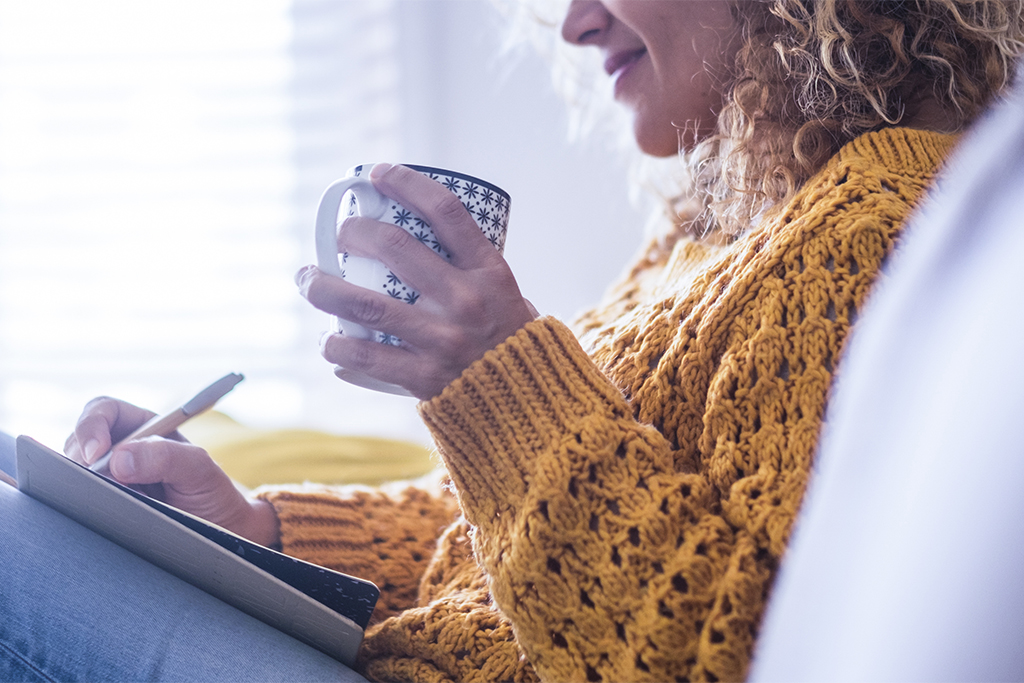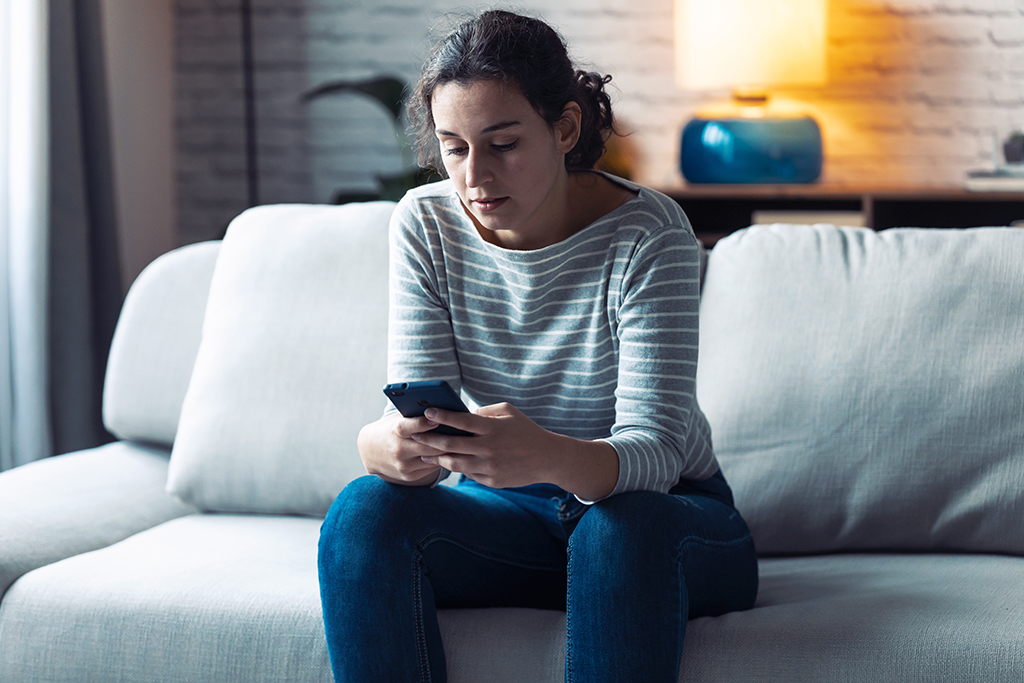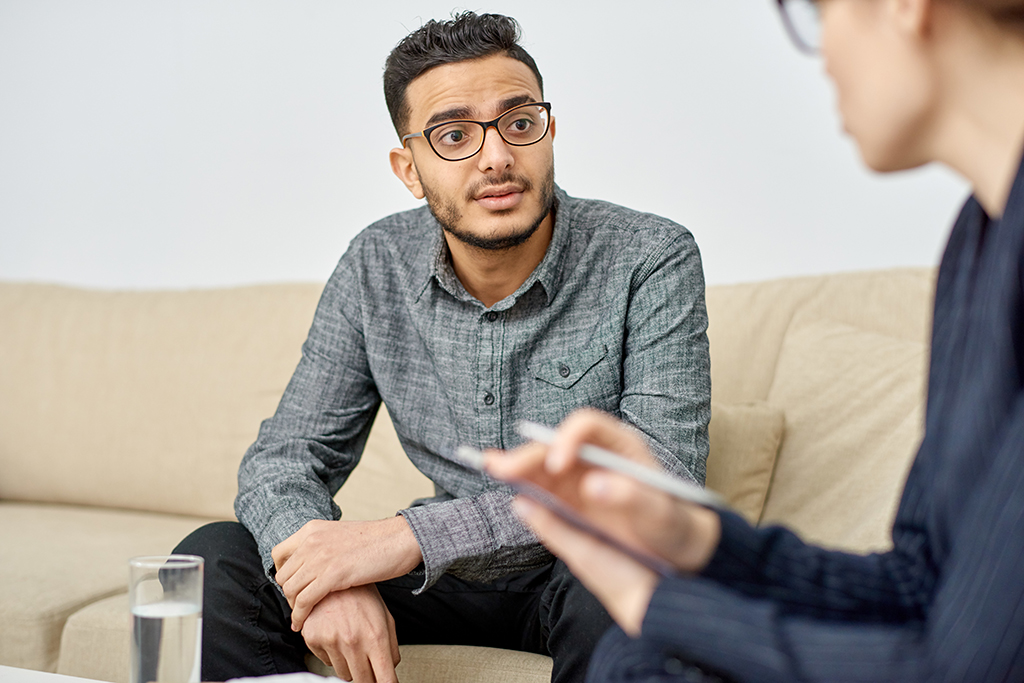Reviewed By:
Feeling the winter blues? You're not alone. As COVID-19 derails holiday traditions and complicates seeing loved ones, anxiety and depression are on the rise. Here are simple tips from Dr. Andrew Mendonsa to maintain your mental health this holiday season.
Table Of Contents
The holidays might be the season of joy, but for many, the most wonderful time of the year can also bring on the blues. COVID-19 has made this year particularly challenging. Between travel restrictions and the stress of getting family members sick, many people will spend this season without seeing their loved ones.
A host of other factors can also trigger holiday depression, from financial worries to shorter, darker days. The impact of holiday stress becomes more pronounced when you can’t see friends or family. Holiday parties might be their own source of anxiety, but mental health experts agree that isolation is worse for your well-being.
Thankfully, experts also have advice to help you manage holiday stress during COVID-19. Here are seven tips from Dr. Andrew Mendonsa, a psychologist and behavioral health expert:
1. Maintain Your Routine
During most years, the holidays mean a departure from routine. We relax our diets, attend more parties, and travel to see friends and family. Holiday interruptions may look different this year, so it’s important to be mindful of how changes in your day-to-day schedule affect your mental health. You may not be able to travel, but you might still have time off. Having a plan for how you’ll spend that time can help you manage mental health issues and avoid relapse if you struggle with addiction.
“Down time can be high-risk if you’re in recovery from addiction, particularly if you’re not interacting with people who keep you accountable,” says Dr. Mendosa.
To avoid slipping into a negative frame of mind, make an effort to maintain as much of your routine as possible. Head to bed and wake up at about the same time every day. If you usually work out on certain days each week, keep it up. By maintaining your routine, the holiday season will feel less disruptive, even during a pandemic. Remember, your physical health and mental health are often intertwined.
2. Stay Connected
Social isolation can be a big factor in developing holiday depression, and it will affect many more people than usual this year. If you’re feeling down, connecting with others can help — even when you don’t feel like reaching out. Following safety guidelines for your area, consider volunteering or meeting a friend for a walk. The Mayo Clinic says outdoor activities that allow for distance, including hiking, cycling and even outdoor fitness classes, are safe ways to socialize during COVID. Although holiday depression may make you want to hide away from the world, making the effort to connect with others will help you feel better in the long run.
Likewise, if you know someone who struggles with depression, make your own effort to reach out. Loved ones who struggle with mental health issues may already feel the urge to withdraw from socializing, which can make feelings of depression or anxiety even worse. Isolation can also increase the temptation to cope with alcohol, drugs, binge eating or other addictive behaviors. An invitation to spend time together, whether safely in person or virtually, can make a big difference, Dr. Mendonsa says.
3. Spend Time Outside
If you find that you struggle with depression throughout the winter, it might not be the holidays. Shorter, colder days with a lack of exposure to daylight can lead to Seasonal Affective Disorder, or SAD, which affects about 10 million Americans. If you suspect your mood is season-related, try to spend some time outside during the day. Even 15 to 30 minutes of sun exposure can improve symptoms of SAD. If you can’t get out into the sunshine, a lightbox can be a great indoor alternative. Fresh air and exercise can also improve your mood. Research by Harvard University shows that even moderate exercise can improve nerve cell connections, which can relieve depression.
With COVID leading to even more time indoors than usual, people who have never experienced SAD may notice symptoms this year. Making outdoor time part of your daily routine can help you get the vitamin D you need.
Have questions about addiction?
Call us at 855-430-9426 to speak with a recovery specialist.
4. Practice Meditation
Studies show that meditating for even 10 minutes a day can improve your mood, decrease anxiety, improve your circulation and lower your cortisol levels. (Cortisol is a hormone that spikes when you’re stressed.) Furthermore, a recent study published by Dr. Caragh Behan, a psychiatrist with the Royal College of Surgeons in Ireland, found structural and functional brain changes in people who meditate or who have completed a mindfulness-based stress reduction (MBSR) program. Dr. Behan suggests that meditation can help to lower anxiety levels even if you’re already in treatment for a mental health disorder.
“Introducing a mindfulness and meditation practice during this pandemic has the potential to complement treatment and is a low-cost beneficial method of providing support with anxiety for all,” he wrote.
You can find plenty of free meditation resources online, including podcasts, apps, and guided videos, but all you need to get started is a quiet place to sit and focus. Simply taking deep breaths and feeling present in the moment can give you many of the benefits of more advanced meditation.
5. Be Open About Your Struggle
You may want to keep your mental health issues private, but there’s a benefit to being upfront, particularly during the pandemic. Without regular face-to-face interaction, it’s harder for friends, family and colleagues to tell when something is “off.” Sharing your history can help you get the support you need from loved ones and patience from your workplace.
Although the best approach is different for everyone, experts recommend having the conversation when you’re in a positive frame of mind. “If you know you’re likely to struggle during the holidays, starting a conversation before you have a problem gives you a chance to communicate while you’re clear-headed,” says Dr. Mendonsa.
The simple act of transparency can also help to improve your mental health. When you don’t have the added burden of hiding your struggle, you’re more likely to address your issues and seek help when you need it.
6. Limit Your Social Media
Kim Kardashian isn’t the only one using social media to create a false sense of “normal.” A quick scroll through Instagram might make it feel like everyone is doing better than they are, and that can affect your mental health. When all you see is a feed of well-crafted moments, it’s hard to remember that social media rarely reflects reality.
During COVID, the reality divide becomes even starker. Masks come off for photos, “throwback” photos can make it look like friends are living a more carefree life than they are, and big smiles hide feelings of stress and exhaustion. If you’ve struggled with mental health disorders or addiction in the past, the feeling that you’re the only one suffering can trigger relapse.
This holiday season, consciously limit your time on social media and focus instead on being present with family and friends. This year, that might mean more FaceTime or Zoom. To reframe negative or unrealistic thoughts, consider counseling sessions with a therapist who specializes in cognitive behavioral therapy. Learning to slow down your thoughts and put your feelings in perspective can help you find healthy coping mechanisms, even if you can’t resist the urge to peek at your phone.
7. Give Yourself a Break
This holiday season comes at the end of an already high-stress year, and spikes in COVID cases mean little chance of a return to “normal” before the New Year. If you’re susceptible to holiday depression or anxiety, the added stress of maintaining traditions can worsen symptoms. Instead, focus on self-care, experts say. This might mean skipping the elaborate lawn display, ordering takeout instead of cooking, and avoiding unnecessary travel.
“It’s OK to give yourself permission for a low-key holiday,” says Dr. Mendonsa. “If you enjoy cooking, by all means, continue to do it. But this is a year to put mental health first. Your brain needs to replenish dopamine and serotonin after periods of stress, and the holidays are a good opportunity to focus on self-care.”
Have questions about depression?
Call us at 855-430-9426 to speak with a recovery specialist.
Holiday Depression and Addiction Relapse
If you have struggled with drugs and alcohol, you may be particularly vulnerable to relapse during the holidays. Relapse can occur for a number of reasons. To start, alcohol and other substances may be more top-of-mind, and those around you may be more inclined to imbibe than usual, making it feel OK to indulge. If you associate positive feelings with a substance, for example, using may also feel like a solution to holiday depression. All of these things can make it harder to resist temptation.
If you are in recovery, try to avoid situations where drugs or alcohol may be present, even virtually. Zoom “happy hours” can be just as triggering as a holiday party. It’s also important to take action when you start to feel down. Make extra virtual appointments with your therapist, or enlist friends and family members who support your sobriety.
If you do relapse or feel you may benefit from dedicated medical attention, you can find the support you need through professional addiction treatment. Inpatient programs allow you to focus fully on recovery, while outpatient programs give you the flexibility to return home in the evenings. Most facilities, including all Sprout Health Group clinics, employ extensive testing and other COVID safety measures.
If you have thought about seeking help for an ongoing addiction, but haven’t yet taken the first step because of work obligations or a busy schedule, consider that the holidays offer an opportune window of downtime to simply heal. To learn more about your options, call the number below to speak with an experienced intake specialist.
Read More
What Is Cognitive Behavioral Therapy? Expert Interview with Andrew Mendonsa
8 Ways to Help Your Friend Through Drug Addiction
5 Ways Mindfulness Fuels Self-Recovery
Have questions about addiction?Chat with one of our recovery specialists now.


